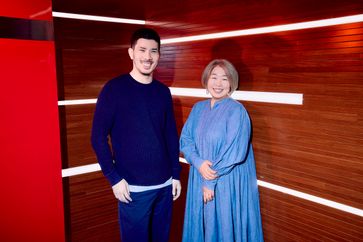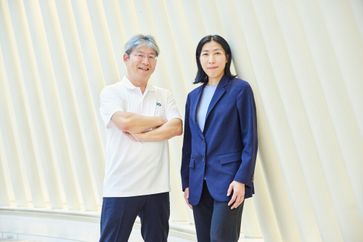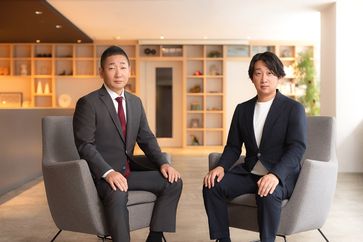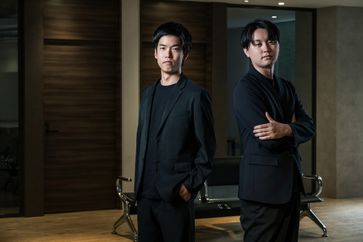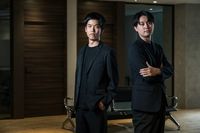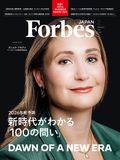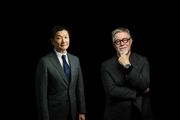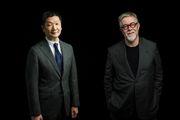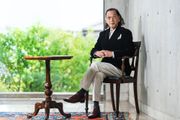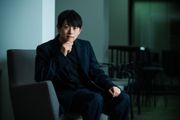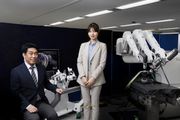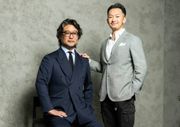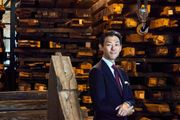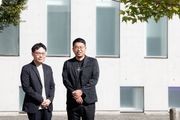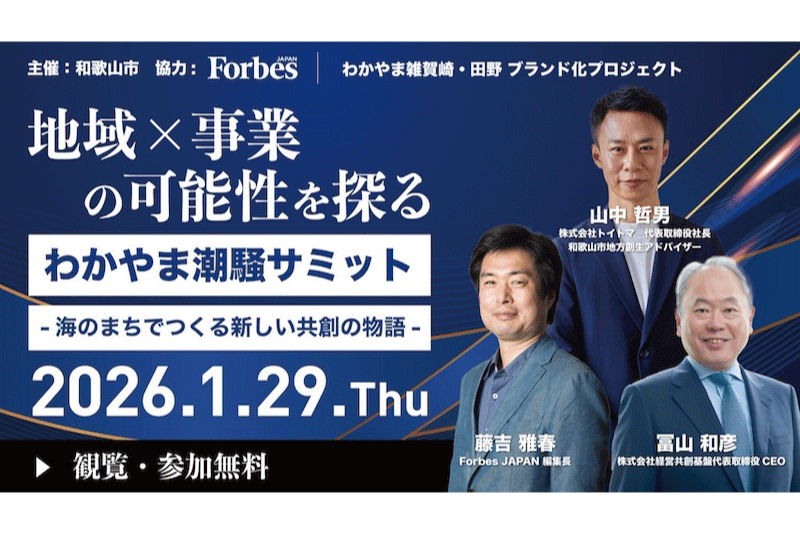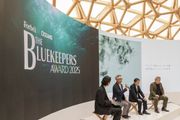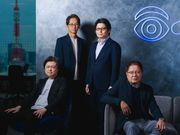“A director’s job is seventy-five percent casting,” said Nagisa Oshima to me on the night before the first day of principal photography on the film “Merry Christmas, Mr. Lawrence.”
We were sitting in the large dining room of the hotel on Rarotonga. In addition to the main cast and crew there were scores of extras, Japanese playing brutal POW camp guards mingling with the most emaciated young men we could find in New Zealand to play the prisoners. I had asked Oshima what it took to be a film director.
“With me,” I said, “casting will be 100%.”
Oshima’s casting on “Merry Christmas, Mr. Lawrence” had been a stroke of genius. From his early days at Kyoto University, where he had taken an interest in theatre, he had come to dislike the stagy and exaggerated style of acting displayed by most Japanese actors, preferring either amateurs or performers from other realms of creativity.
Oshima chose Ryuichi Sakamoto, a young and wildly popular musician; David Bowie, a musical icon (although it might be closer to the truth to say that Bowie chose Oshima, whose films he had admired for years); and “Beat” Takeshi, a comedian, who subsequently went on to direct his own films under his real name, Takeshi Kitano.
Now it was the second week of August 1982, and I was standing on the beach with David Bowie at water’s edge on Rarotonga, the main island in the Cook Islands, located in the Tropic of Capricorn, basically in the middle of the Pacific Ocean. Ryuichi, whom I had met two months earlier at the costume fitting session in Tokyo and who had arrived from Japan a little later than David, was approaching us. It was my job, as Oshima’s assistant and interpreter, to introduce the two.
David put out his hand,
“Very nice to meet you,” he said in his usually easygoing and extremely friendly manner.
They shook hands. Ryuichi, who was some six centimetres shorter than David, looked up at him, silent and somewhat awestruck.
Ryuichi told me that he did not feel comfortable as an actor, and, curiously, he did not consider himself a good one. I disagree with this. I think his performance as the troubled and intense martinet, Capt. Yonoi, was rather brilliant. Ryuichi had asked Oshima if he could also compose the film’s score, and Oshima was more than happy to have him do so. If Oshima had, for some reason, declined, I doubt that Ryuichi would have accepted the part in the film.
I saw Ryuichi in Tokyo from time to time once the film had wrapped, but less frequently after he moved to New York, though we did get together on some of his trips back home and, during the first decade of this century, we communicated by email.
On 22 October 2011, however, I travelled to Oxford to attend an event conducted by him and actor Sayuri Yoshinaga. It was held at Hertford College, which was established at the end of the 13th century, in a hall in the corner of the college’s beautiful quadrangle of clipped lawn and ivy-covered walls. Slightly more than half a year had passed since the catastrophic earthquake, tsunami and nuclear meltdowns had struck the Tohoku region, and both of them were performing to raise the consciousness of people regarding the dangers of nuclear power. They linked the meltdowns with the holocaust caused by the dropping of the atomic bombs on Hiroshima and Nagasaki in August 1945. Sayuri Yoshinaga read poems written by victims of those nuclear disasters, and Ryuichi played “Forbidden Colours” from “Merry Christmas, Mr. Lawrence” on the piano. A television crew from NHK was there to film the event.
“It is a total illusion,” Ryuichi told me after the concert, “to think that nuclear energy can be peaceful. What happened at Fukushima is the same as what people in Hiroshima and Nagasaki experienced, except that this time the Japanese people brought it on entirely by themselves.”
Ryuichi was an activist who fused his love of music with his devotion to what he saw as the primary issue of the day: the destruction by humans of the natural environment. He made trips to the coastal regions of Tohoku affected by the earthquake of 11 March 2011 and the subsequent degradation of the environment by radiation contamination.
From the deserts of Africa to the Greenland ice sheet, he listened to the wind hugging sand and to dry leaves falling off trees; he listened to rocks skitting down slopes and to water streaming below ice; and he introduced those sounds—consciously and subconsciously—into his music.
I was thrilled when he said that he would write the theme song for my 2016 film, “Star Sand.” The story of the film takes place on a small island in Okinawa, and Ryuichi had adored Okinawan music long before it became trendy in Japan. Early on in his career he had turned to the musical cultures of Asia, and this at a time, the 1970s and ‘80s, when most young creative people in Japan were focusing their attention on Europe and the United States. (He incorporated Indonesian gamelan music into the score of “Merry Christmas, Mr. Lawrence.”)
My dear friend Ryuichi Sakamoto was a kindhearted, self-effacing and totally unpretentious person, a devoted father. He changed the way Japanese people look at music and was Japan’s gift to the world. There will not be another like him (余人をもって代えがたい).
“I want people to travel,” he said in an interview for the Metropolitan Shinjuku High School in December 2011, “to nurture an outlook on themselves and their society from the outside, and by that I mean not only the geographical outside but also outside their own time. People must learn about the present through thinking about the future.”
Roger Pulvers is a film director and author of the cultural memoir My Japan, published by Balestier Press.

